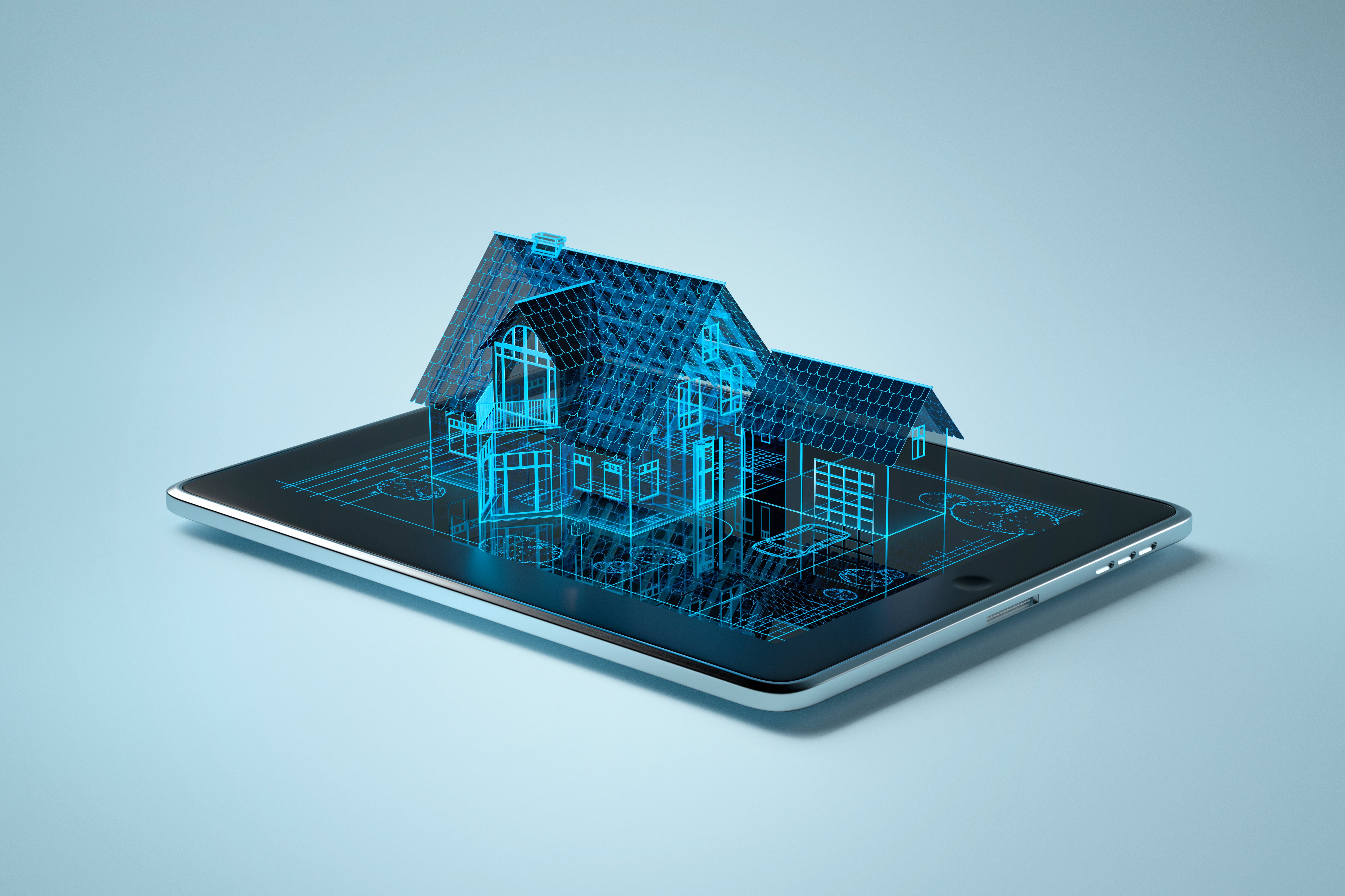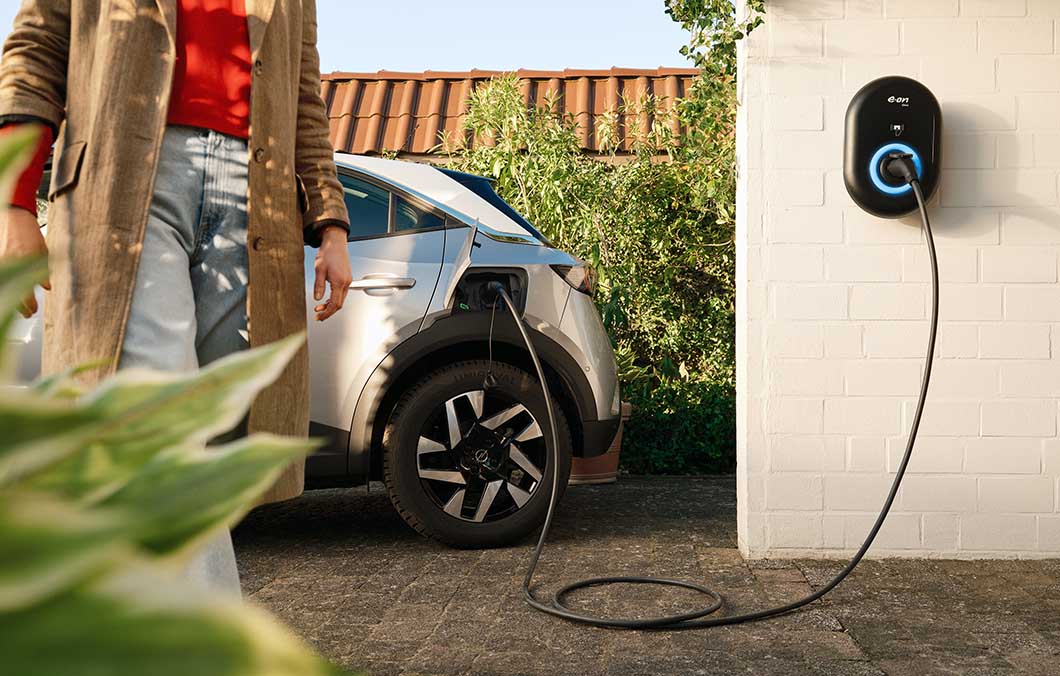“Dynamic, health-conscious, and self-sustaining”: welcome to the home of the future
The Independent’s tech editor Andrew Griffin gazes into his crystal ball to see how we might be interacting with our homes in 25 years’ time

Our houses have always been excellent bellwethers for tech innovation: from the mangle and the washing machine to the fridge, all the way up to today’s array of gadgets and machinery, our home lives have been constantly revolutionised and improved by new tools. In recent years, that process has sped up dramatically, with everything from WiFi enabled thermostats to air fryers.
And it only looks set to continue speeding up as the world undergoes new waves of technological transformation, with batteries, connectivity, AI and other breakthroughs leading the charge.
Here are some of the technologies that are set to change the way we live at home – and outside of it.
Ambient technology
At the moment, engaging with technology in your home usually means plucking your phone out of your pocket and tapping away. The house of the future is likely to integrate that technology into everything, so that it spreads around you in an ambient way.
So you’ll be able to yell out to the microphones in your home and have them contact your oven, via WiFi, and get it warmed up for the evening’s meal. Cameras inside of your fridge will let you check from afar whether you have the ingredients for that meal.
Augmented reality
The digital and physical world are merging. But with augmented reality, they might merge to such a degree that it’s hard even to tell them apart.
At the moment, augmented reality requires wearing a large, cumbersome headset. That is likely in the very near future to be shrunk down to a pair of glasses of the kind people wear today – just with displays on the eyes and speakers in the ears.
That would make it easy to leave a virtual TV hovering in space, for instance. You could play games such as table tennis with loved ones, without a table or a ball. Or you might receive notifications from smart appliances around the house; a pop-up reminder to dry your clothes when you walk past the washing machine.
Batteries everywhere – and no need to charge
Battery technology is progressing at an intense rate, adding new capacity all the time. And new kinds of batteries could offer profound changes, allowing gadgets to work effectively forever without requiring a charge. Those that do could use ambient charging methods such as small solar panels or power gathered from unused signals such as WiFi.
That small change would free us from the regular swapping of batteries and having cables snaking around the home. But it could also allow for whole new kinds of technology: freed from the constraints of batteries and cables, inventors are likely to come up with new kinds of devices for our home.
Self-powering
Today, our houses draw power from the outside world through the National Grid. But in the future, they might become tiny power stations in their own rights, and help provide energy back to the outside world at the same time.
Already, people are installing solar panels on their houses to help supplement their energy usage with freely available, sustainable power. But they are becoming ever more efficient, giving more power for less space.

That will probably be stored in batteries within our houses, which means that we have our own reliable source of energy whenever we need it. But extra can also be transferred elsewhere, to homes that need more energy.
Our move towards more efficient appliances will also mean that we will draw less power, too. Technologies such as heat pumps not only use less energy but mean that our houses have a more regular temperature.
And self-cleaning
Advances in robotics mean that we are finally reaching the point where machines might be able to navigate our homes safely and help us out. This has been the dream of the future for decades, but it has proven frustratingly difficult to build the sensors and machinery to actually do it; now, at last, it seems to be on the horizon.
That could allow for ever more advanced ways of allowing our homes to clean themselves. There are already futuristic-looking robot vacuums and lawnmowers, but one day they are likely to be able to move things around the house, tidy up, and reach up to surfaces beyond the floor.
Advanced robotics could give us screens that are able to move themselves around the kitchen to show us our recipes wherever we need them, for instance. Or they could zip around the home to check on pets and home security when we are away.
More ways than ever to get home
The way that we leave and return to our homes has always been a key part of how we live in them. Many people’s houses leave huge amounts of space for cars and other mobility solutions that are required to get us out into the world and back again.
Technology is already radically disrupting this. Electric vehicles are becoming ever more popular, and are reshaping our houses through integrated charging points.
The trend towards “micromobility” – travelling by scooter, electric bikes and other small electric vehicles – is also set to continue, allowing us to get around in new efficient ways while readdressing the need for large vehicle space in or around the home.
Conclusion
All the technologies we have welcomed into our home have aimed to make our lives more efficient and sustainable. But in the years to come that could speed up in ways we have never seen before: more sustainably, with more connection to the things we love.
Technology will underpin that, as it always has. But what’s really fascinating will be the ways that human culture changes: how might trends and behaviours be altered when our home lives become less stressful, more streamlined and more sustainable?
Ready to power up your home with E.ON Next’s smart energy tech? Visit E.ON Next to learn more




Bookmark popover
Removed from bookmarks